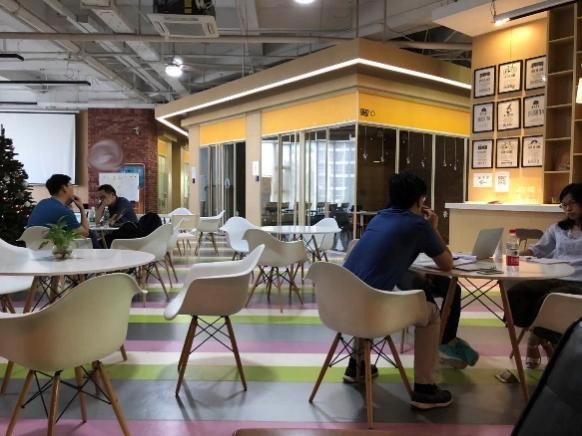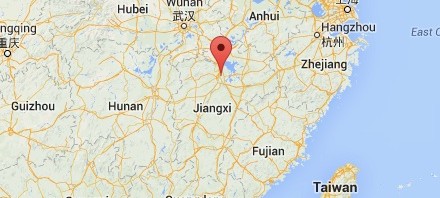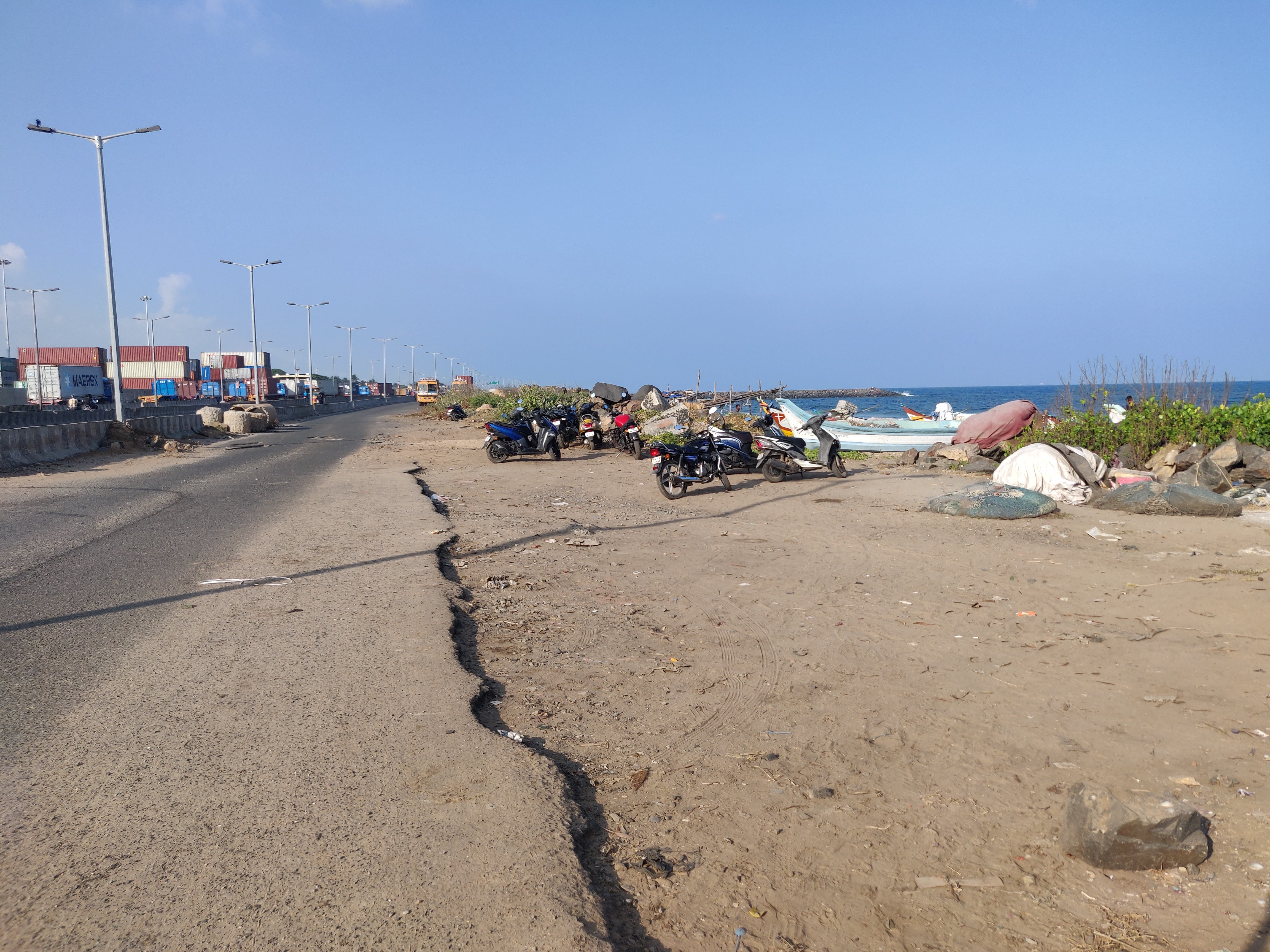This contribution offers insights into the struggles on (un)learning the researcher-researched binary, whiteness, and white femininity during fieldwork in Tanzania. By critically reflecting on the limits of her own position and the inability to beat some stereotypes that stand on the way to building genuine relationships, the author discusses what she found useful in her journey of attempting to tune her cognitive and behavioural reactions, writes Idil Ires.
_______________________________________________
In late 2016, I set out for rural Tanzania to research agrarian transformations, with Writing Culture (Clifford and Markus 1986) as the only non-fiction in my backpack and a notebook to “practice” reflexivity (Bourdieu and Wacquant 1992). I was self-conscious about my role as “the researcher,” the main orchestrator of data collection and the guard of sensitive information, as well as of the power inherent in this position. Because the researcher position can be discursively reconstituted by mobilizing own “multiple social belongings” (Grimaldi et al. 2015) and intersecting identities (ethnicity, gender, class, political views, religion, etc.) (Hall 1990; 1996), I had planned to draw on my various social repository as a woman, activist, migrant with working-class and middle-eastern roots to dive into the field and build meaningful connections with different rural groups. However, only a few weeks into the field, the difficulty of doing these things in practice dawned on me, leaving me feel unprepared and disoriented. In this contribution, I will address three adversities related to my race and gender, as well as the research context in Tanzania, and what I learned from my experience that could perhaps be useful for others.
First of all, from whatever positional lens we see the world in the field, “the body” transmits the first piece of information. All other identities camouflaged by it have to be mediated in every new encounter. In my case, in Tanzania, I was outright discerned as a “white woman” and, at first, struggled with it due to two reasons. On the one hand, growing up in a colorblind community had taught me human connection would triumph over all of our differences—a biased view since neglecting what we clearly see prevents us from getting real about privilege and structural inequalities (Bell 1992). Recognizing this late (only a few years before I arrived in Tanzania), I lacked experience in correctly acting in situations wherein color shapes a big part of how people construe who others are. On the other hand, I did not know how to cope with being called “white,” “European,” and “expat”—titles that an overnight flight to Tanzania borrowed me. I hesitated to accept them as they represented a position of power for me that I never really related to in my whole life; after all, I belonged to an ethnic minority in Turkey and was officially a “migrant” in Europe. A further problem here was the stereotypes associated with these identities that influenced how people approached me. The first few weeks were an intensive learning period about the prevalent views on wazungu (pl. white people) (e.g., weak, fragile, easily famished, wealthy, luxury needing, doing funny things), images challenging to beat. Realizing that I indeed embodied some of these stereotypes with my notebooks, big rucksack, boots, and recorder—things that grabbed less attention at home (Figure 1), I lost confidence in some social situations. I occasionally reacted wearily when people rightly judged me by what they saw.

Second, sometimes, the structural disadvantage of being a woman intersects with white stereotypes and moderate the power position. Starting out fieldwork, I had not made much thought about being a solo-traveling female in Tanzania, other than looking up for the general safety rules, customs, and gender norms that I try to follow everywhere I travel. But soon, I realized that this gender-race crossroad often inhabits unpleasant experiences little spoken of. This could also have significant implications on our positionality—on how we interpret the people and various interactions after that—thus, even influencing our research. Some unpleasant situations I neglected or responded with humor were: feeling stuck while watching with other passengers the televised Tanzanian music videos objectifying the white female in a seven-hour bus ride; the flirting smiles; livestock keepers offering me cows to marry them; sexist jokes etc. (Figure 2). Yet other situations were more unsettling: my first night in a small town near the village I intended to visit, two people attempted to break into my guesthouse room for half an hour but luckily failed. The next morning, the receptionist grinningly explained to me that they were probably drunk and wanted money. This, as my first-day experience, was an earthquake for my perceptions of rural Tanzania as a safe and friendly place, a wrong view I could not wash off for months until I got to know some people and built relationships locally.

Third, while looking to reflect on ourselves to build non-authoritarian and meaningful relationships in the field, the popular image that other researchers constructed in a country can become our positionality problem. In international development that is my research area, most approaches do not fall wide apart from the “white savior complex”—a notion that usually applies to the context of non-African volunteers engaging in teaching, fundraising, and healthcare services “to save” the less fortunate in the continent, although they could have also contributed to solving fundamental social issues in their countries. Many research approaches perpetuate a similar ideology with their language depicting Africans as the poor, starving people that “experts” should help out. Besides, some research practices are also twisted: Some such experts (researchers and interns) I run across in rural Tanzania were from the development agencies in Dar es Salaam who arrived with land rovers, drivers, and often with professional photographers to capture the fieldwork moment, returning a few days later with the material curated by the local authorities. It is likely that often through such processes, data is collected, and important decisions on the spending of massive donor cashflows are made. In this tradition, despite being a doctoral researcher affiliated with no such organization, farmers and local authorities often asked me to influence decisions on cash aid, fertilizer vouchers, and seed deliveries to resolve their problems that I could not. Sometimes I worried about whether their perceptions of who I am and what I could potentially do led them to hyperbolize or invent details with the urge to always indicate a material need, posing a research bias.
Desperately wanting to differ, I spent more than half a year trying to resituate myself in the field. In the beginning, in a futile attempt at blending in and proving I was different, I did some unnecessary things that I was neither accustomed nor immune to, such as drinking unbottled water and hiking a dozen kilometers under the midday African sun. The real difference came from spending more time with people informally. I had started the fieldwork with a tight timetable and aiming to reach a certain number of interviews per day. I abandoned this approach. I extended my fieldwork to be able to discuss in-depth the issues that people wanted to talk about, chatting with people in food huts and in the streets, visiting the weekly village market that pulled ethnic groups from remote areas, sitting and drinking tea with shopkeepers in the buzzing village center that drew people to me whom I could otherwise not meet. Though these discussions often evolved beyond the scope of my dissertation as they were rather conversational than data-extractive in nature, they helped me to observe people outside their farms, witness conflict situations and the customary ways they are resolved, and talk politics in relaxed settings, thus gaining rich insights into my study subject. Besides, showing interest in people and their life stories and sharing moments helped establish trust and meaningful connections that lasted beyond fieldwork. Repeated interactions started changing the people’s perspectives toward me, recognizing I did not represent the government or an organization, and they perceptibly become more trusting and genuine in our conversations. Such changing interactive dynamics through my fieldwork also showed that I was not only the researcher but also the researched. As scholars accurately put (Emirbayer and Desmond, 2012: 581):
After centuries of studying without being studied, of examining without being examined (or so they thought), white scholars have found themselves face-to-face with an other that stares back at them, writes back, and analyzes back, and perhaps they have felt, as Sartre (1988, p. 291) felt, ‘the shock of being seen.’
The theoretical researcher-researched dichotomy started appearing futile beyond a general emphasis on mutual respect and handling data confidentially after I began to register names and call people by our everyday acquaintance (e.g., mzee[elder], shosti [friend], and mama [mother], bike repairer, the kiosk lady) and no longer perceived them as research subjects. Among all the people, I might have had some authority over my interpreter, whom I paid and told what to do after all; yet even then, I would jokingly call him “boss” as he managed the interview scheduling and even the interviews some days I battled heat exhaustion. Still, despite my best efforts, I failed to defeat some of the stereotypical images the body—through my perceived race and gender—transmitted. Some people kept calling me a mzungu and a European until the last day: my interpreter’s hosts in one village, the tailor and her husband teaching at the secondary school, continued to compare me with the only other white person in the village, a Peace Corps volunteer, and that she allegedly owned a wide selection of African kitenge clothes and spoke better Swahili than me, as if I could have nothing in common with the rest of the village. Since I knew they did not have hostile intentions, embracing the stereotypes and reacting with humor appeared more constructive than resisting them. Nevertheless, these experiences led me to think of white positionality as a special barrier and fully grasp that some limits to reflectively repositioning ourselves in the field remain too strong to defeat.
Though it is certainly true that I could not fully overcome my innately biased worldviews and properly recalibrated my cognitive and behavioral responses despite my preoccupation with critical methodologies, I consider myself lucky to have reached a better awareness. That is, our position gained by the white privilege to travel afar and inescapably serve as part of a deformed research business reveals a far more cruel power imbalance we must reflect on than our researcher authority in navigating the daily research agenda. However, the ability to grasp and reflect on the political, economic, and historical realities we embody is not a muscle we can flex in an overnight flight to another continent. It needs to be trained and embedded in the research design. In this context, much can be done by researchers to be better prepared for the field.
First off, the work of reflective thinking in the field starts before the field. For me, it has been useful to exchange with African businesspeople and researchers from various industries (e.g., fashion, food, e-commerce) at the Africa-specific events of the LSE and Oxford and to follow social media accounts on the white-savior complex. These two outlets helped me to critically adjust my way of thinking and language about the research process, product, and relation to the researched: I started by getting rid of terms such as “expert” since this can only be the people who lived the lives we study. Data collection and interpretation of findings should be more participatory and emphasize how researched people want to resolve their problems, though these ways may conflict with our critical views. In our research recommendations, we should rethink depicting international donors as the problem-solver but address national actors and refer to their knowledge and capacity. Moreover, we should spend time reflecting on how our white privilege transpires in the ways we think, talk, write, and act and work on that at our home countries to help build a better, equitable society and immensely help in the field. Besides, initiating networks for trans and female-identifying researchers could help as platforms for gender-specific guidance, without stigmatizing fears and bad experiences.
References
Bell, D. (1992). Faces at the Bottom of the Well: The Permanence of Racism. New York: Basic Books.
Bourdieu, P. and Wacquant, L. (1992). An Invitation to Reflexive Sociology. Chicago: University of Chicago Press.
Emirbayer, M. and Desmond, M. (2012). Race and Reflexivity. Ethnic and Racial Studies 35(4): 574–599.
Grimaldi, E., Serpieri, R. and Spanò, E. (2015). Positionality, Symbolic Violence and Reflexivity. Researching the Educational Strategies of Marginalised Groups. In Researching Marginalized Groups, edited by K. Bhopal and R. Deuchar, 134–148. London: Routledge.
Hall, S. (1990). Cultural Identity and Diaspora. In Identity: Community, Culture, Difference, edited by J. Rutherford, 2–27. London: Lawrence & Wishart.
Hall, S. (1996). Introduction: Who Needs Identity? In Questions of Cultural Identity, edited by S. Hall and P. du Gay, 1–17. London: Sage.
Sartre, J.-P. (1988). Black Orpheus. In “What is Literature?” and Other Essays, Cambridge, MA: Harvard University Press.
_______________________________________________
About the research
Idil Ires’s doctoral thesis used a political economy lens to investigate the industrial setoff in Tanzania’s agricultural sector and its socioeconomic implications for rural livelihoods. In this context, Idil focused on staple food production andexplored which of the new commercial farm inputs, infrastructural investments, and emerging agribusiness linkages with companies helped the lowest-income farmers to survive extreme droughts and prosper. The research offers insights into land, labor, and mobility aspects of livelihood transitions. The findings are relevant for the government policies and the scholarly debate around poverty alleviation, food security, and climate change adaptation.
Ires, I. (forthcoming) Does crop intensification foster climate change adaptation? Economic and environmental tradeoffs in securing rural livelihoods in Tanzanian river basins. Frontiers in Environmental Science.
For citation: Ires, I. (2021) Researcher positionality and tackling racial and gender stereotypes in the field. Field Research Methods Lab at LSE (1 February) Blog entry. URL: https://blogs.lse.ac.uk/fieldresearch/2021/02/01/researcher-positionality-and-tackling-racial-and-gender-stereotypes-in-the-field/






Such a brave narrative both from the way the author have faced the hardships from fieldwork and how she critically analyses her own experience. Rather than escaping from the controversies of being a kind of representative from the Western world in rural Tanzania, I found it amazing how Idil has sensibly dealt with them, understanding the context and limits of her relationships with locals and still positioning herself in a markedly political stance (can there be scientific neutrality when dealing with people’s realities?) of giving people voice to name their own reality. Congratulations on the reflections you have presented here and I feel anxious to read other pieces of your work
A clever piece, and fun to read. I think it’s remarkable that the author does not only reflect on but also takes her own role as a white female European researcher in East Africa seriously and actually deals with it. Just so not to ultimately influence and distort the research/results. Very noble. Good luck and continued success!